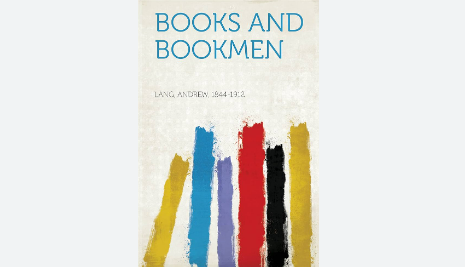A Bookman’s Purgatory
byA Bookman’s Purgatory takes us into the life of Thomas Blinton, a man who has dedicated his existence to the pursuit of rare books. For Blinton, book-hunting is far more than a hobby; it is a pursuit of intellectual superiority, a form of elitism that he compares to other bourgeois activities like fishing or shooting, which he deems far less meaningful. Despite warnings about the potentially destructive fates of famous book-hunters, which he dismisses as mere superstition, Blinton continues to immerse himself in the labyrinthine bookstalls of London. From the City to West Kensington, he journeys daily, seeking out literary treasures hidden in the nooks and crannies of second-hand shops. To him, these excursions represent both an affirmation of his intellectual prowess and a form of personal redemption, providing him with a sense of purpose in a world filled with distractions.
Blinton’s obsessive devotion to book collecting, however, brings with it ethical challenges and moral compromises. His desire for rare and valuable books sometimes leads him into morally gray territory, where envy, greed, and pride blur the lines between passion and avarice. He becomes fixated on acquiring the most exclusive volumes, at times exploiting the ignorance of sellers, relishing in the misfortune of less fortunate collectors who miss out on rare finds. His obsession with owning these prized possessions often crosses into financial speculation, adding a layer of greed to what began as an innocent hobby. As Blinton spends more money on these acquisitions, his household grows increasingly neglected, a stark contrast to the treasures he hoards, highlighting the dangers of his obsession. The pursuit of knowledge, which once seemed noble, is now tainted by the greed that controls him.
The narrative takes a dark turn as Blinton’s seemingly harmless passion leads him into a bizarre and supernatural ordeal. One day, a mysterious stranger with an aura of mysticism appears and begins guiding Blinton through a series of irrational purchases. This spectral figure compels him to buy volumes he doesn’t need or want, including complete sets of Auerbach’s novels and an extensive work on the history of Europe by Allison, pushing him into an irrational frenzy. The stranger’s influence grows stronger, leading Blinton to an auction where his obsession reaches its peak. Blinton, driven by an inexplicable urge, begins bidding astronomical sums for books he can’t afford, each bid feeling like a compulsion rather than a choice. What starts as a pleasurable hobby now transforms into a nightmarish experience, as Blinton’s pursuit of rare books devolves into a dangerous obsession, one that threatens to unravel his life.
As the day progresses, Blinton’s reckless spending leads him into financial ruin, and the mysterious stranger orchestrates the ultimate humiliation: the auctioning off of Blinton’s personal library. The treasured volumes that Blinton had carefully accumulated over the years are sold off for a fraction of their true value, bundled carelessly with inferior books. The scene unfolds like a macabre display of his failure, as friends and foes alike snap up his beloved books for mere pennies. The sight of his life’s work being dismantled before his eyes is an excruciating blow to Blinton’s pride. What had been a source of intellectual pleasure and satisfaction now becomes his punishment, as he faces the consequences of his blind devotion to material possessions. The auction represents the culmination of Blinton’s obsession—his books, once a symbol of his passion for knowledge, are now just commodities being sold to the highest bidder, and he is left with nothing but the hollow emptiness of what he’s lost. This final act of degradation serves as his purgatory, a fitting retribution for a life spent chasing knowledge without understanding the true value of wisdom.


